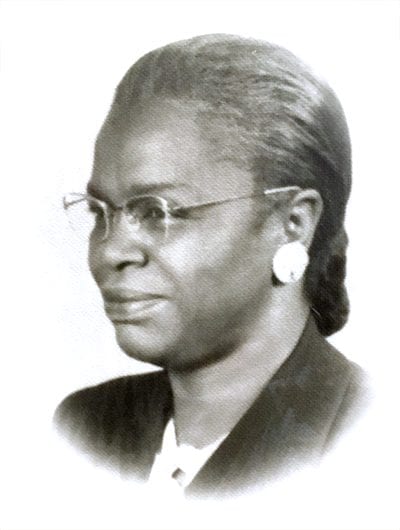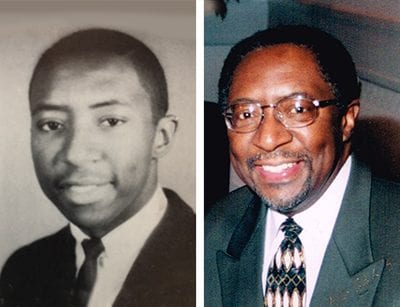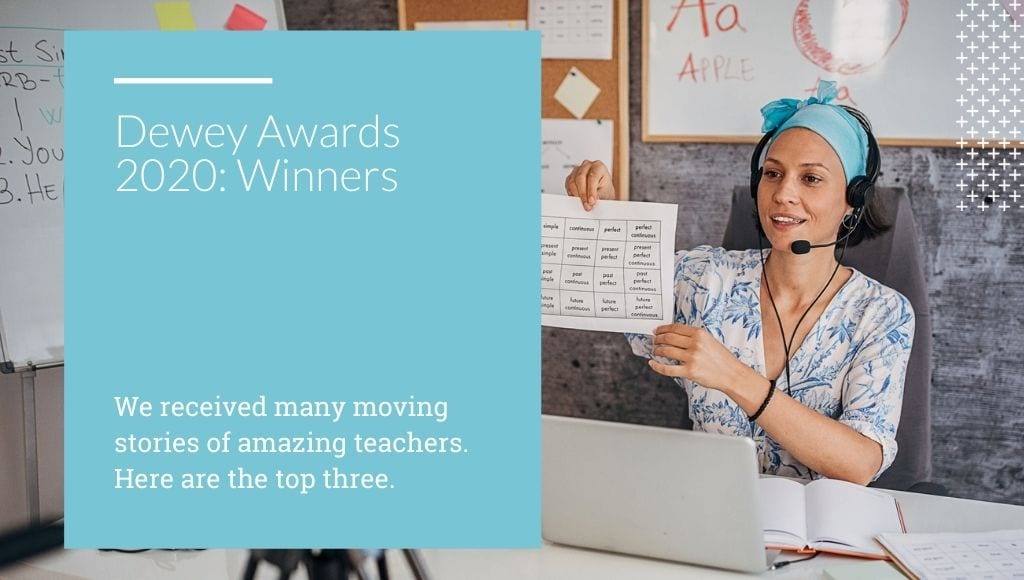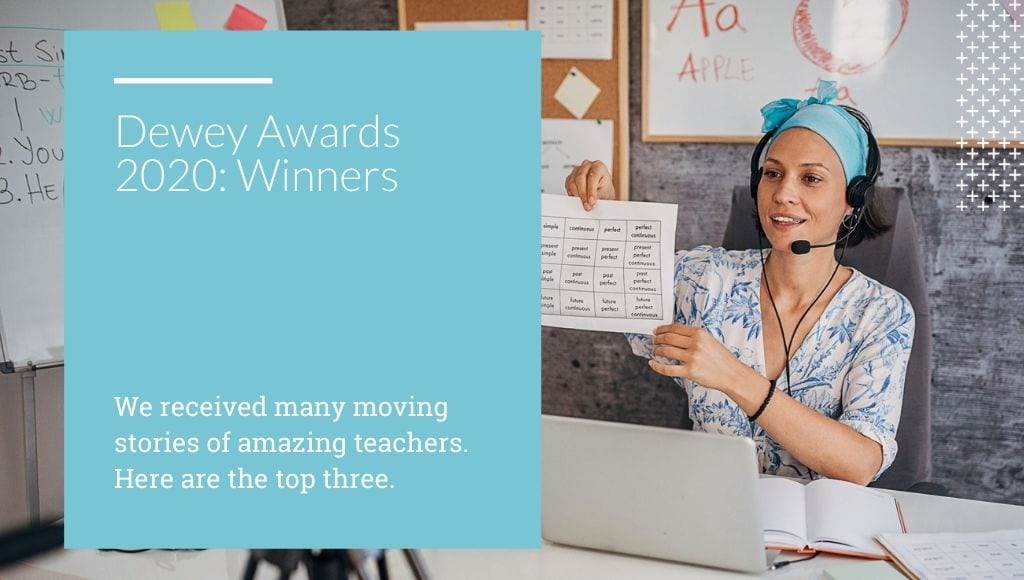Our Dewey Award Winners are here!
Our panel of judges received so many amazing entries this year, competition was fierce, and the selection process was quite challenging. It’s heartwarming to see how many people wrote in, telling us stories of teachers who made a decisive impact in their lives.
After much deliberation, our panel chose the stories they deemed most moving.
The winners of the 2020 Dewey Awards are:
- Sarah Ward – honoring Mr. Heroux
- Dr. Cecil W. Payton – a tribute to Mrs. Katie Pugh Smith
- Dr. Mechelle Newell – Mr. Porter, the most special teacher (video)
The authors of these stories will be awarded a $1,000 charter school grant each, to go to the charter school of their choice.
We’re featuring all three stories below. In upcoming weeks, we’ll be posting many other stories sent to us during this contest. Stay tuned!
Mr. Heroux
Story by Sarah Ward
My sophomore year was the first year that I participated with my school orchestra in the annual MPA, music performance assessment, held by our district. The orchestra had been steadily rehearsing and perfecting our repertoire for weeks under the direction of our conductor, Mr. Heroux. Our small charter school orchestra was quite the underdog group, having never received straight superiors, the highest score from all of the judges, at one of these events. This year, however, was different: we were thoroughly prepared and determined to impress our talent upon the judges.
When the day arrived, every student was a bundle of nerves and excitement. Mr. Heroux consistently fed us words of encouragement throughout the day, keeping us focused on the task ahead. The performance came and went, and the stress of our scores was pressing upon us. We knew we had given a spectacular performance by the look on Mr. Heroux’s face after we walked off the stage. Performance scores were given to the directors to share with us, so the anxiety of our small ensemble was palpable in the band room the next morning.
“First of all,” I recall Mr. Heroux saying, “you all did an incredible job yesterday.” From his tone of voice, I could tell that something was amiss. I looked up and saw tears glistening in his eyes as his voice cracked. At that moment, everyone could tell that he had bitter news to share with us. Then he told us: we did not get straight superiors. He went through each of the judges’ score sheets. Two out of the three judges had given us superior ratings, but one judge only gave us an excellent, the rating below superior.
To make matters worse, Mr. Heroux told us that he had examined the point brackets, and he sadly reported that the excellent was one singular point away from a superior. I was shocked, heartbroken, and angry. We had failed to achieve the top score by one point. I looked around the room and could see other members of the orchestra equally affected by the news, especially the seniors who had worked four years for this moment.
Even when he thought that there was nothing he could say to make us feel better, Mr. Heroux demonstrated his care for us that day. He recalled us how we had worked incredibly hard and had done so well on stage the previous day. Even though we were nervous, we did not let our nerves get the best of us. When we made a mistake, we kept going. He reminded us that we had played our hearts out on that stage, and regardless of the score, we stood out as one of the most united ensembles at the event. He told us that he knew we were disappointed, and he was not going to lie to us. He was disappointed as well, but he was also proud.
Through his tears, he told us just how proud he was of our accomplishments. As an ensemble, we had been through a lot that year, but we never failed to pull through and make him proud. He helped us see that this instance was no exception. He was so incredibly proud that we were able to work together and produce beautiful music, regardless of the scores we received. One by one, many of the members of the orchestra vocally expressed their agreement with Mr. Heroux. I remember a specific instance when the principal violist shared his gratitude on how his section was always there to back him up on parts he felt that he did not completely know.
After we were finished sharing, Mr. Heroux stood at the front of the room with a teary smile on his face, and at that moment, we were all satisfied and knew we would not have been the ensemble we were without his guidance.
I do not think that there was a dry pair of eyes that morning when the orchestra students left the room. Mr. Heroux had shown us that sometimes we have to look past something such as a score or a rating to see what is truly important. No, we did not receive our desired straight superiors, but we came together as one body of students and gave the performance our all. We showed our strength, not necessarily in numbers or experience, but by the will of our resolve and determination to put on our best performance. We could not have done this, however, if it was not for Mr. Heroux. He is not just a teacher at my charter school, he is a mentor and leader who cares immensely about his students.
I cannot count the times when he has encouraged me when I felt as if I was not a good enough musician to succeed in my life. He inspires every student he comes in contact with to put their best self forward and never give up on themselves, even when a setback occurs. His lessons are full of wisdom and never fail to assist students in their day to day lives, such as the one he imparted upon us that day in my sophomore year. When I am older and reflect upon my high school career, I will always see Mr. Heroux as the noble and caring person who I aspire to be.
Mr. Porter – The Most Special Teacher
Story by Dr. Mechele Newell
Hello, I’m Dr. Newell and I am super-excited about your proposal to share a story of inspiration because I am nothing but a person who comes from stories of inspiration. So I want to share a story about the most special teacher I have ever had. And his name was Mr. Porter. He taught at John F. Kennedy High School in Cleveland, Ohio, the inner city. Okay, I’m talking about the inner city and I transferred to that school my junior year, I believe. And I was put in an Algebra 2 with Trigonometry Course and everyone told me, “Mr. Porter is the worst. Mechele, he’s going to require so much of you.” And so I thought, “I don’t really want to be in this class.”
I mean, I am in an inner-city school where no one cares about what these kids are doing. Why do you care so much, right? But let me just give you a glimpse of Mr. Porter. Mr. Porter was a black man probably in his forties, I’m thinking, maybe late forties. Now that I’m an adult, right? He wore a blue button-down cardigan, pretty much similar to the look of Mr. Rogers from Mister Rogers’ Neighborhood. He did not really mix and mingle with the students but he knew everything about you. He had this way of having enough information about you to literally scare you. He never yelled. He never raised his voice. You never saw him physically do anything harmful to students.
But in a school where we had some really rough students, everyone feared Mr. Porter. First of all, you’re in a school where not many of the educators in that school thought much of the students, all right? And on top of all of that, you have this course that is considered to be a college prep course. And you have a bunch of black and brown students in the class that we feel like we’re kind of elite, right? Because look around, right? Look at where you are and look at us. We’re sitting in this class, so we are already the elite group. So we kind of demanded some respect, if you will. Just based on that alone, well, Mr. Porter wasn’t one of those men.
He felt like all of the students at that school should be able to perform at this level. And this level was not the level most teachers expected from the students. And so just to give you an example, when you started in his class, he would tell you, “No one will leave my class with a grade lower than a B.” And so you’re excited, this guy is going to be great. He’s going to give us points. It’s going to give us extra credit. And that was not the case at all. Mr. Porter demanded that every time you were awake, walking anywhere, that you would have his Algebra 2 with Trigonometry book on your person.
And if he did not see you walking around with that book, he would deduct points. And then you’d have to earn them back by doing some extra work. And you already didn’t want to do the work that you had. So I don’t even know why we thought this was something he could do. But if he saw you at the mall, seriously, if he saw you at Burger King, which was across the street, you had better had that textbook on you. We all feared Mr. Porter but not because he was mean, not because he was hateful, not because he said disparaging things, but because he had this level of expectation that just did not fit in our environment, it just didn’t.
Nobody expected anything of us but for him to expect everybody to earn B’s, all right or greater, right, higher grades? And to expect to see kids that most folks called, knuckleheads, good-for-nothings, to expect to see us anywhere we could walk, right? To have our books with us, that was just, that was scary, yet he earned our respect. And I will honestly say that anything and everything that I know about math right now is because of that man. Now this was an Algebra 2 with Trigonometry Course, you would have thought, right? That I had picked up some of my math, my love for math or my skill in math at an earlier age.
But everything that I learned from him solidified whatever I had been taught before. And normally you would look for a strong foundation of math and then you would grow on top of that. But it happened in a backward way for me. And most of the kids in our class, being in a district where … You can look up the Cleveland Public or Cleveland Municipal School District, that school district remember had a good reputation, all right? Especially when it came to dealing with students who look like me. And so our foundation was not sturdy, it was not strong at all. Yet we were still matriculating and still being pushed through the system.
And so to end up in a class with a man who loved math as much as he did, he wasn’t even excited when he taught it. He just taught it with such ownership, that you knew that he knew what he was talking about and you really wanted to know, as well. He made you believe that you could do it. He did not ever offer you a way out. It was always, this is what you’re going to do because I said, “You can do it.” I say that he inspired me the most because I find myself having that same passion for my students’ learning. And I find myself telling them, “Look at me. You can do this because I said you can do it. Not because I’m the boss of you but because I see it in you.
And because I am going to do whatever it takes to make sure you have the tools that you need to master this skill.” His impact, it didn’t just have an influence on me while I was in his school or in his class, but it has had an influence and an impact on everything that I have touched since knowing him. I realize that I can do all things, that there is nothing outside of my reach. That just because other people may not feel I have an ability to do something, that does not make it true, it does not make it so.
And so that’s why I choose Mr. Porter. Even after leaving that school, my family had to move to another area and I had to leave John F. Kennedy High School. I wound up going to a school called Garfield Heights High School in the Greater Cleveland area but it’s actually a suburb. And that was my senior year. And when I got there, the guidance counselor told me that I should just go to junior college. She laughed at me when I told her I wanted to go to Notre Dame College of Ohio, which is a women’s college. She laughed so hard. She literally fell over in her chair. She said, “You’ll never make it in a four-year.”
And I honestly believe what made me push past all of that, was what had been instilled in me by Mr. Porter in that math class that I had taken just the year prior. I had him for the entire year. He was an amazing, amazing teacher. But most importantly, he sowed seeds of hope. And having that experience after I transferred out and being able to, now as an adult, reflect on all that I went through academically from my childhood through adulthood and now they call me doctor, I can’t help but recognize him for his influence and his inspiration. So that’s my story. That’s my story. Thank you so much just for allowing us this opportunity to reflect on what good teaching or what good leadership or what good solid inspiration looks like in the classroom.
In Loving Memory of and Tribute to Mrs. Katie Pugh Smith
Story by Dr. Cecil W. Payton
As young African American males growing up in the ’50s and ’60s in the tiny segregated town of Orangeburg, South Carolina, African American students naturally were relegated to attending segregated schools based on skin color.

I remember well how we were bussed past the all-white schools to the all-Black schools that were not nearly as well equipped. That did not, however, deter us from seeking the best education that we could get. Although our schools were not as well equipped, we had some of the best, highly qualified black teachers who really cared about their students and went above and beyond the call of duty to ensure that we were fully prepared for the next chapter in our lives.
One such teacher was the late Mrs. Katie P. Smith, a loving and caring teacher who had such a profound effect on my life. She and her husband, Hampton D. Smith were both educators, he a professor at Claflin College (now university), and she an elementary/middle school teacher in the Orangeburg County Public School System. In addition, their home was on the same street as my family’s, only about a half-mile apart. I remember vividly how they would wave in their car as they passed by our home every day on the way to work. I was fortunate enough to have had Mrs. Smith as my sixth and seventh-grade teacher.
Initially, she was supposed to only have been my sixth-grade teacher, but she was so impressed with our class that she asked to move up one grade so that she could be our seventh-grade teacher also. Of course, we were delighted because she was such a wonderful teacher who always encouraged us to do our best. She truly believed that we could be anything that we wanted to be and would always find something extra for us to learn.
One of the things that endeared me so much to her was the time when I was the only student in a class of about 30 students who spelled all 100 of the words correctly on a spelling test. She was so proud of me that she had me stand in front of the class as she shared my test result. The excitement and enthusiasm in her voice were so exhilarating to me that I still remember the moment as if it were only yesterday. That moment instilled in me the confidence that I needed to succeed. Even today, I can still hear her voice as she said, “Cecil, I am so proud of you.”
In addition to being great in the classroom, Mrs. Smith was also an avid outdoor person. She loved to take us on field trips to explore nature.

On one particular trip, we all had to remove pine tree seedlings from a tree farm and plant and nurture them in our respective yards at home. Having grown up on a farm, I was so excited that I planted three pine trees at my home.
As those trees grew over the years, they continuously reminded me of Mrs. Smith who passed away about 35 years ago. It was only about five years, however, ago that we had to have the last of the three trees removed from the family’s estate for fear of it being struck by lightning. However, that site is marked by a ring of beautiful azalea plants that our mother planted years ago.
Yes, Mrs. Katie P. Smith was very special to me. I only wish that she could have lived long enough to witness the person that I have become.
Cecil W. Payton, PhD – The Kid from the “Wrong Side of the Railroad Tracks”

